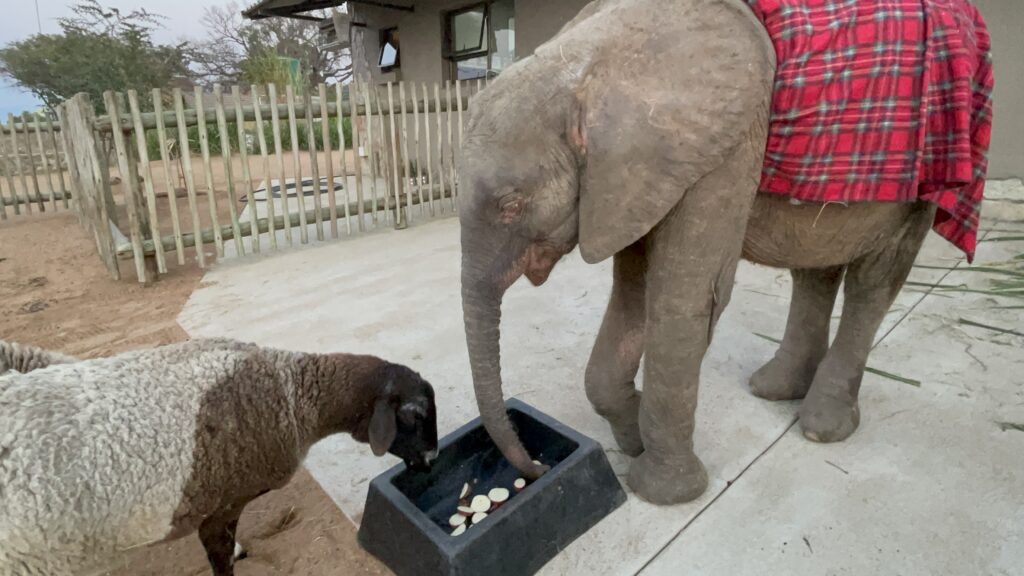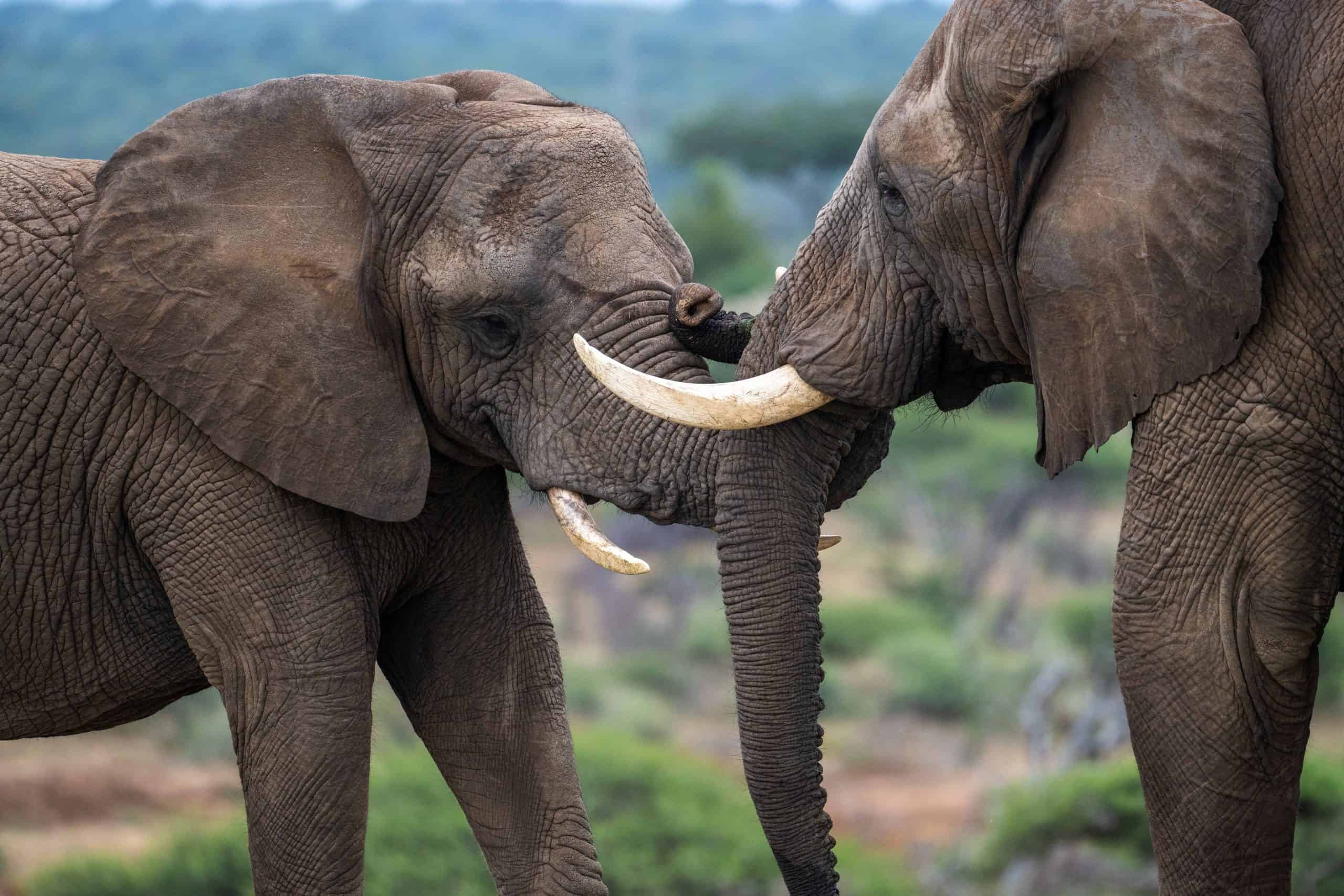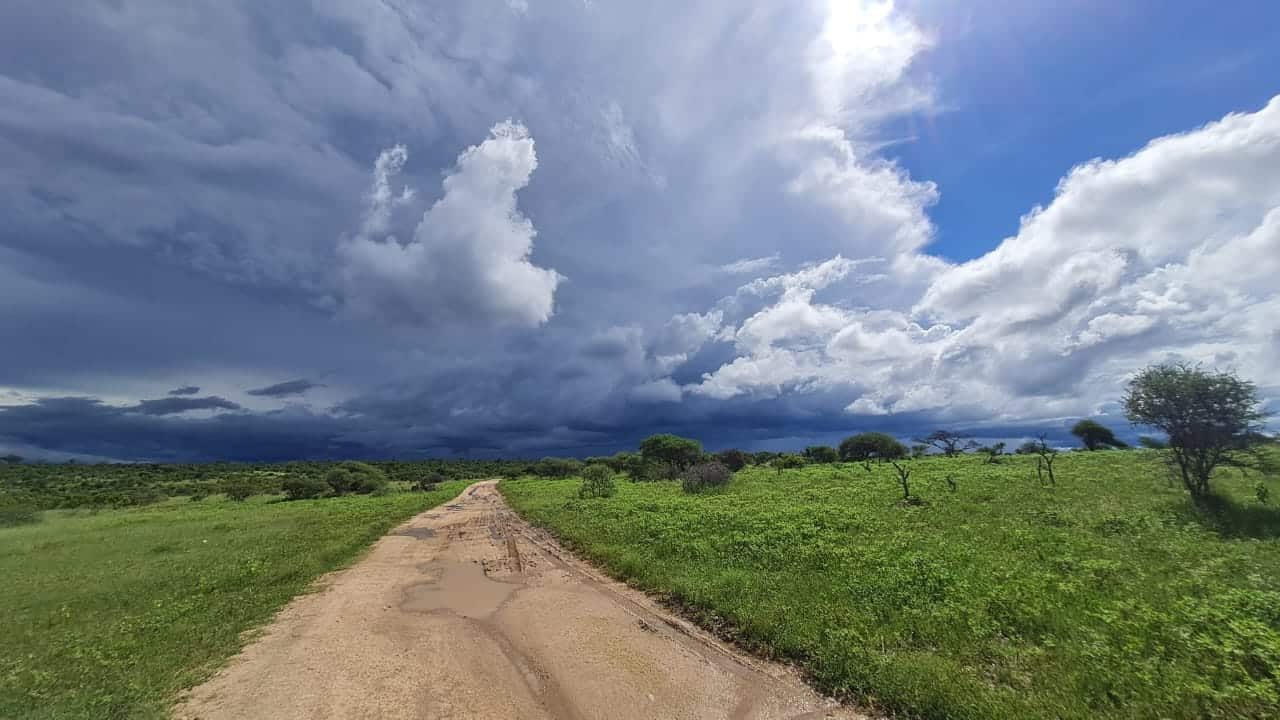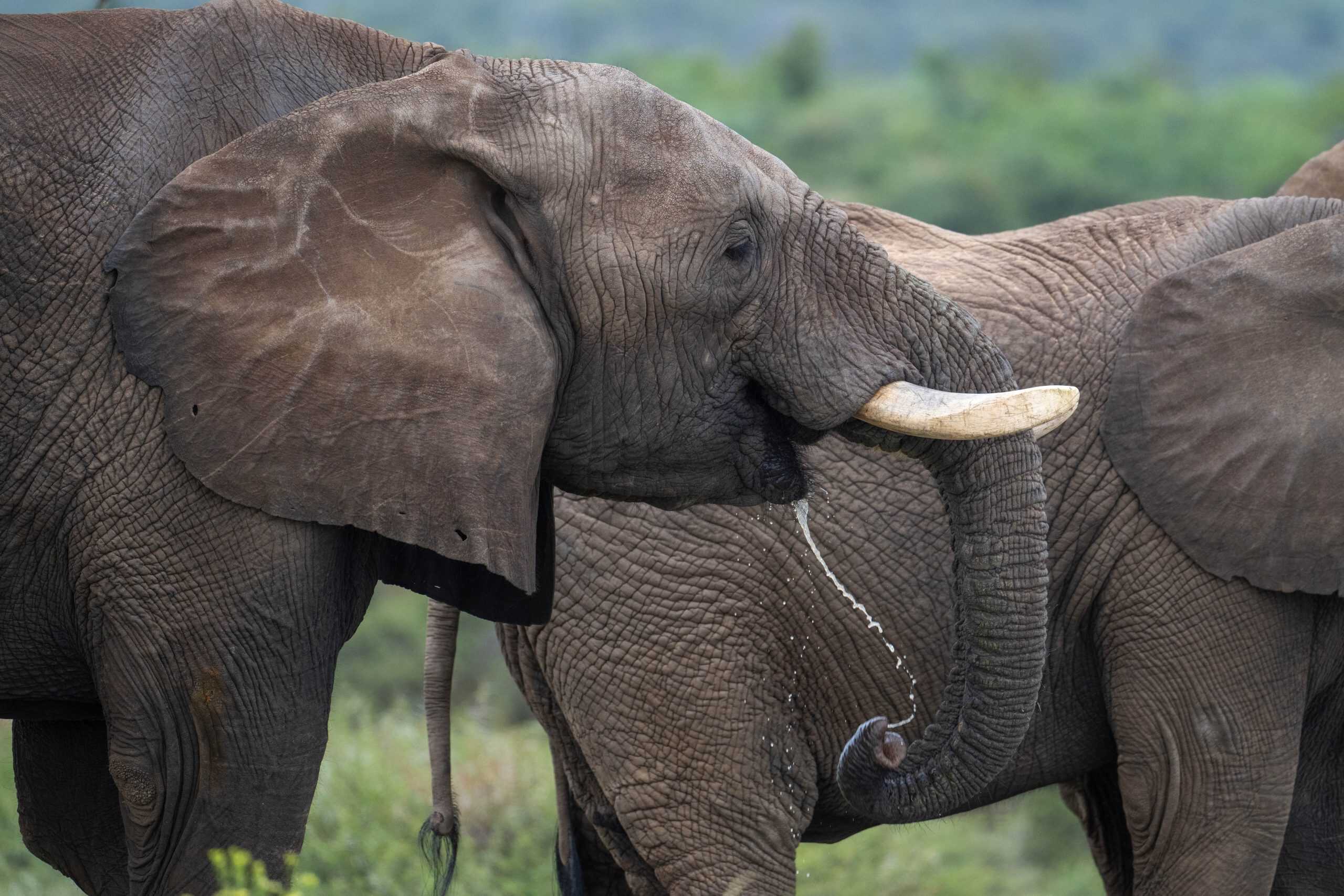How We Keep the Elephant Herd Well Nourished All Year Round
What it Takes to Keep the Herd Nourished
Elephants are the largest terrestrial animals on the planet. Considering their size, it is understandable that they have to consume large quantities of food. On average, an adult African elephant requires about 100-270 kilograms of food and 160 litres of water per day. To ensure that they consume this amount, they may spend up to 18 hours a day foraging and always try to stay close to a source of food and water. They’re known to cross large bodies of water just to track down the sustenance they need as the wilderness changes with the seasons.
As herbivores, African elephants will consume a wide variety of foods including bark, leaves, roots, twigs, shrubs, fruit and flowers, and are also known to rip bark from branches and uproot young trees. Ensuring that the rescued herd in our care continue to grow and thrive throughout the year and the changes that winter brings in our reserve, we supplement their nutritional needs all year round.
Bana grass, also known as elephant grass
You may have seen us carting bana grass around, to and from the nursery and stables, or watched the Jabulani herd and Khanyisa contentedly chewing and eating the long fresh grass. Our bana grass plantation is a sustainable, fortunate and convenient extra source of food for the Jabulani herd and orphans to supplement their foraging in the bush.
Commonly referred to as “elephant grass”, bana grass provides a good source of nutrition, including protein and fibre. The farm-to-fork concept of sustainability is just as essential when caring for elephants as it is for humankind. The provision of bana grass for the elephants in the Jabulani herd and orphanage becomes even more important at times when some of the herd members aren’t able to go out foraging and walking in the bush during the day. For instance, with Fishan, when he was recovering from his leg fracture.
Keeping this plantation surviving and providing is part of our overall sustainability management plan. Tree bark and branches Elephants can reach high branches, taking food from the ground and trees. The tree bark helps their digestion as it contains calcium and roughage. This enables the clear passage of fruits and plants in their herbivore-based diet. Essentially without the tree bark, an elephant cannot process large quantities of food (100-270 kg), every day.
We also provide the herd with a variety of vegetables including: butternut, pumpkin, gem squash, marulas and grapefruits as additional nourishment, when in season, to ensure that the elephants receive the necessary nutrients, vitamins and minerals to remain healthy during the tougher winters.
Lucerne feed provides an alternative source, especially during the dry season or possible droughts for the elephants as well as some of the other wildlife on the reserve. Lucerne has plenty energy and protein, providing a top quality feed that helps to improve animal health. Its rumen-friendly scratch factor makes it highly digestible.

We are so grateful for our sponsors, fosters and donors who help us to provide the herd with this extra nourishment all year round!





No comments yet.